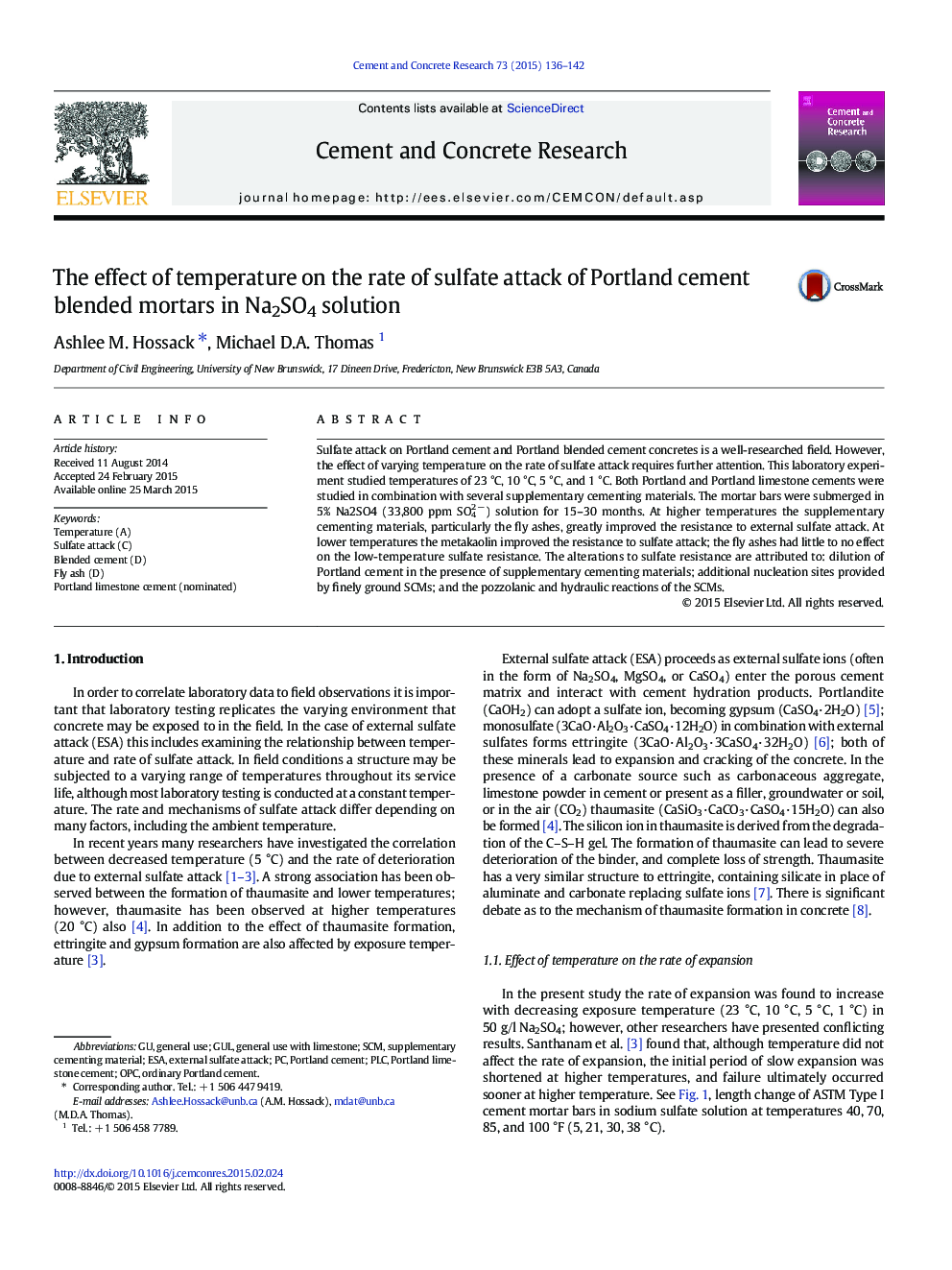| Article ID | Journal | Published Year | Pages | File Type |
|---|---|---|---|---|
| 1456139 | Cement and Concrete Research | 2015 | 7 Pages |
Sulfate attack on Portland cement and Portland blended cement concretes is a well-researched field. However, the effect of varying temperature on the rate of sulfate attack requires further attention. This laboratory experiment studied temperatures of 23 °C, 10 °C, 5 °C, and 1 °C. Both Portland and Portland limestone cements were studied in combination with several supplementary cementing materials. The mortar bars were submerged in 5% Na2SO4 (33,800 ppm SO42 −) solution for 15–30 months. At higher temperatures the supplementary cementing materials, particularly the fly ashes, greatly improved the resistance to external sulfate attack. At lower temperatures the metakaolin improved the resistance to sulfate attack; the fly ashes had little to no effect on the low-temperature sulfate resistance. The alterations to sulfate resistance are attributed to: dilution of Portland cement in the presence of supplementary cementing materials; additional nucleation sites provided by finely ground SCMs; and the pozzolanic and hydraulic reactions of the SCMs.
